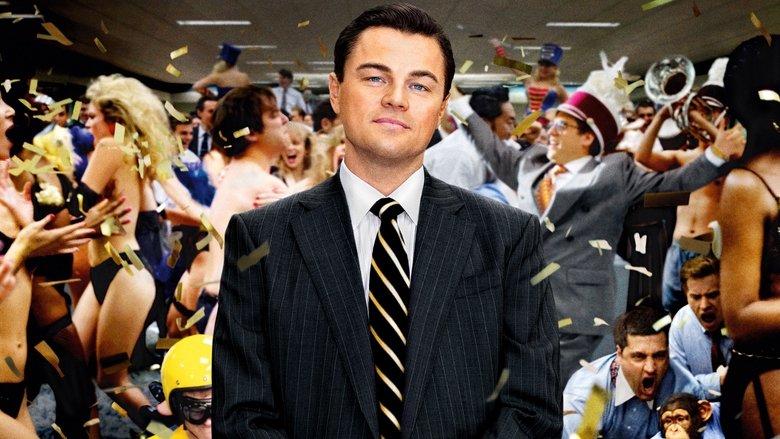Best finance movies of all time
Delve into the captivating world of finance through the lens of cinema. These films offer a dramatic and insightful look into the complexities of Wall Street, corporate dealings, and the pursuit of wealth.


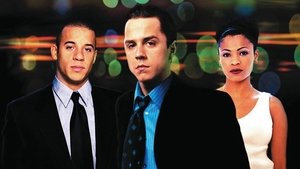
Finance movies offer a thrilling peek behind the curtain of high-stakes deals, market booms and busts, and the individuals who navigate this complex world. From cautionary tales of unchecked greed to inspiring stories of perseverance, these films explore the human element within the often-impersonal realm of money and power.
"The Wolf of Wall Street," directed by Martin Scorsese, offers a no-holds-barred look into the excessive lifestyle of a stockbroker. Oliver Stone’s "Wall Street" remains a seminal work, capturing the ruthless ambition that defined the 1980s financial scene and popularizing the phrase "Greed, for lack of a better word, is good." For a more recent deep dive, "The Big Short" breaks down the complex events leading up to the 2008 financial crisis, making it accessible and engaging for viewers.
Beyond the dramas, there are films like "Moneyball" and "The Social Network" that, while not strictly about finance, explore innovative business strategies and the entrepreneurial spirit driving success in different industries. And for those seeking an uplifting narrative, "The Pursuit of Happyness" showcases resilience and determination in the face of economic hardship.
These movies, whether fictionalized or based on true events, provide valuable perspectives on the financial industry's impact on society and the ethical considerations at play. They entertain, educate, and provoke thought, making them essential viewing for anyone interested in understanding the forces that shape our economic landscape.
12. The Company Men (2010)
The Company Men offers a poignant and timely look at the human cost of corporate downsizing during the 2008 recession. Ben Affleck, Chris Cooper, and Tommy Lee Jones star as three executives who lose their jobs at a major shipbuilding company and struggle to adapt to their new circumstances. The film explores the themes of identity, masculinity, and the search for meaning in a world where job security is no longer guaranteed. While it can be a bit melodramatic at times, The Company Men provides a realistic and empathetic portrayal of the challenges faced by those who lost their livelihoods during the economic downturn. A detail that may interest you: The film was written and directed by John Wells, who also produced the television series ER and The West Wing.
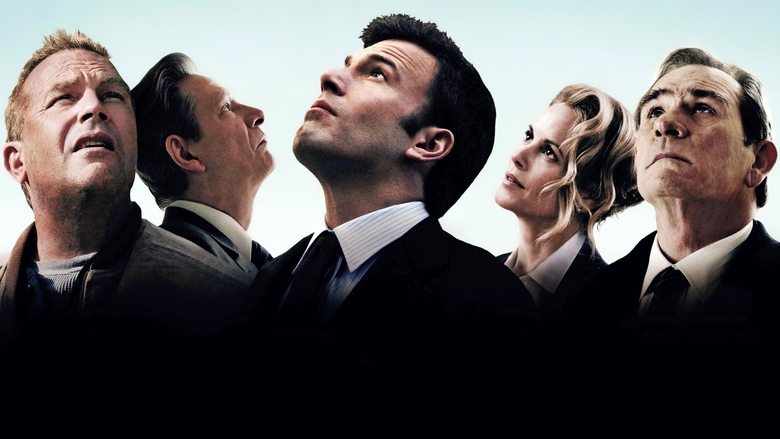
11. The Pursuit of Happyness (2006)
The Pursuit of Happyness is an inspiring biographical drama about Chris Gardner, a single father who overcomes homelessness and financial hardship to become a successful stockbroker. Will Smith delivers a powerful and emotional performance as Gardner, capturing his determination, resilience, and unwavering love for his son (played by his real-life son, Jaden Smith). The film is a testament to the power of perseverance and the importance of never giving up on your dreams, even in the face of seemingly insurmountable obstacles. While it contains some fictionalized elements, The Pursuit of Happyness remains a deeply moving and uplifting story. Interesting Note: Chris Gardner himself makes a cameo appearance at the end of the film.
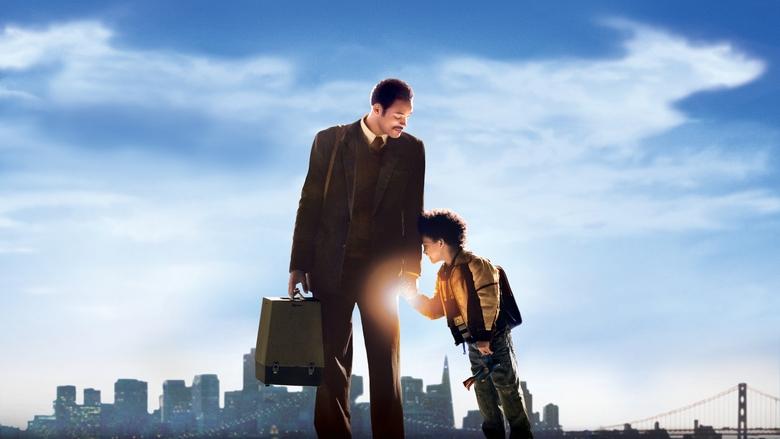
10. Rogue Trader (1999)
Rogue Trader tells the true story of Nick Leeson, a British derivatives trader who single-handedly brought down Barings Bank, one of the oldest and most respected financial institutions in the world. Ewan McGregor stars as Leeson, portraying his rise from ambitious young trader to reckless gambler who concealed massive losses through fraudulent accounting. The film offers a cautionary tale about the dangers of unchecked risk-taking and the potential for a single individual to cause catastrophic damage to the financial system. While not as flashy or stylish as some of the other films on this list, Rogue Trader provides a compelling and informative account of a real-life financial disaster. Worth knowing: Barings Bank had been in business for over 230 years before its collapse.

9. Trading Places (1983)
Trading Places is a hilarious and timeless comedy that satirizes class and privilege. Dan Aykroyd and Eddie Murphy star as Louis Winthorpe III, a wealthy commodities broker, and Billy Ray Valentine, a street hustler, whose lives are deliberately swapped as part of a cruel social experiment by two wealthy Duke brothers. As Louis and Billy navigate their new circumstances, they learn about the unfairness of the system and ultimately team up to exact revenge on the Dukes. Trading Places is a clever and entertaining commentary on wealth, poverty, and the absurdity of social hierarchies. Fun Fact: Jamie Lee Curtis learned to speak German for her role as Ophelia, a prostitute who helps Louis.
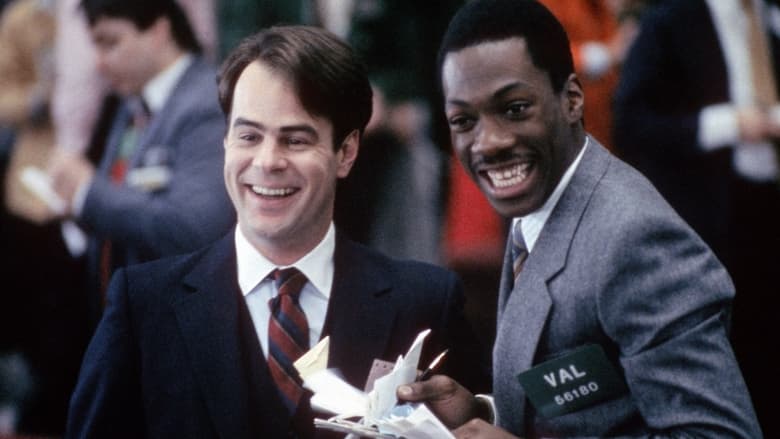
8. Glengarry Glen Ross (1992)
Glengarry Glen Ross is a relentlessly intense and darkly comedic drama about a group of real estate salesmen desperate to close deals in a cutthroat market. Based on David Mamet's Pulitzer Prize-winning play, the film features a powerhouse cast including Al Pacino, Jack Lemmon, and Alec Baldwin, each delivering unforgettable performances. The dialogue is sharp, profane, and often hilarious, capturing the desperation and moral compromises of men driven to the edge. Glengarry Glen Ross offers a bleak and cynical view of the American Dream, where success is measured solely by the bottom line. Did you know?: Alec Baldwin's iconic "coffee is for closers" scene was not part of the original play but was written specifically for the film.
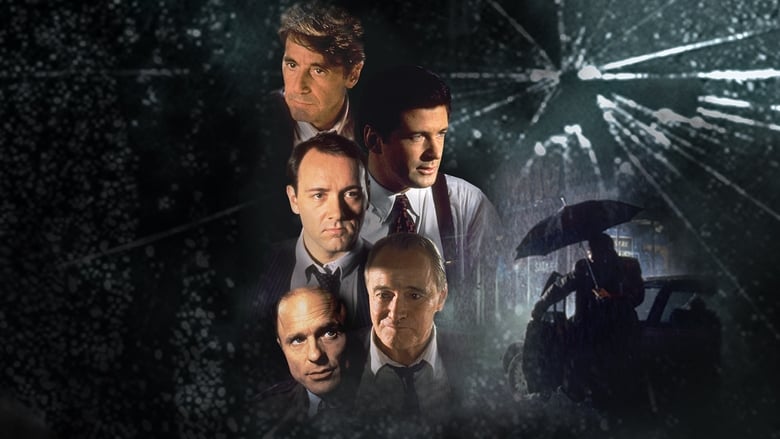
7. Too Big to Fail (2011)
Too Big to Fail, a made-for-TV movie, offers a detailed and gripping account of the 2008 financial crisis from the perspective of Treasury Secretary Henry Paulson and other key government officials. The film dramatizes the frantic efforts to prevent the collapse of the financial system, including the bailout of AIG and the negotiations with Congress to pass the Troubled Asset Relief Program (TARP). With a cast including William Hurt as Paulson, James Woods as Dick Fuld, and Paul Giamatti as Ben Bernanke, Too Big to Fail provides a behind-the-scenes look at the high-stakes decisions that shaped the course of the crisis. While it necessarily simplifies some of the complexities of the situation, it offers a compelling and informative account of a pivotal moment in history. Something to consider: Based on the book of the same name by Andrew Ross Sorkin.
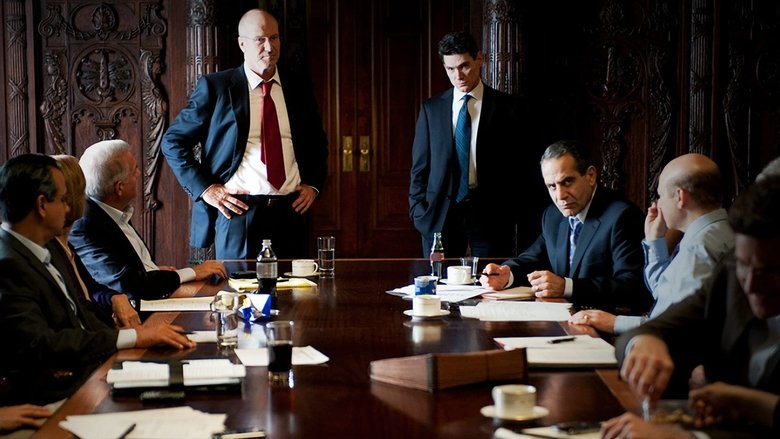
6. Inside Job (2010)
Inside Job is a meticulously researched and deeply disturbing documentary that exposes the systemic corruption and regulatory failures that led to the 2008 financial crisis. Charles Ferguson directs and narrates, guiding viewers through the complex web of deregulation, conflicts of interest, and outright fraud that enabled the crisis to occur. The film features interviews with key players from the financial industry, government regulators, and academics, revealing a culture of impunity and a lack of accountability. Inside Job is a powerful indictment of the financial system and a wake-up call about the need for greater transparency and oversight. Interesting detail: The film won the Academy Award for Best Documentary Feature in 2011.
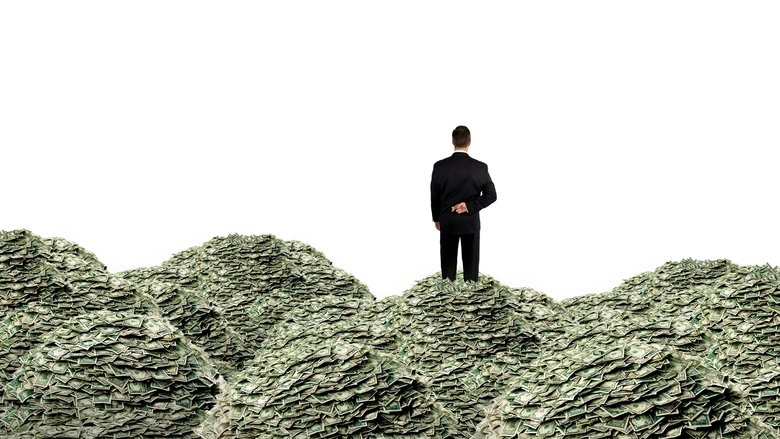
5. Boiler Room (2000)
Boiler Room plunges into the high-pressure, morally ambiguous world of a fly-by-night brokerage firm. Giovanni Ribisi plays Seth Davis, a college dropout who joins the firm to make easy money, only to discover the unethical and illegal tactics used to scam unsuspecting investors. Ben Affleck delivers a memorable cameo as a ruthless recruiter, setting the tone for the film's depiction of greed and manipulation. Boiler Room offers a fast-paced and suspenseful look at the dark side of stock trading, where fortunes are made and lost on the backs of ordinary people. Although not as polished as some of the other films on this list, it’s still a thrilling ride that shows how far some people will go in the pursuit of wealth. Fun Fact: The film is loosely based on the real-life experiences of individuals who worked at Stratton Oakmont, the brokerage firm founded by Jordan Belfort (the subject of The Wolf of Wall Street).

4. Wall Street (1987)
Oliver Stone's Wall Street is a classic morality tale set against the backdrop of 1980s high finance. Charlie Sheen plays Bud Fox, a young and ambitious stockbroker who gets seduced by the wealth and power of Gordon Gekko, played with iconic villainy by Michael Douglas. Gekko's mantra, "Greed, for lack of a better word, is good," encapsulates the era's obsession with wealth accumulation and sets the stage for Bud's ethical downfall. The film provides a fascinating look at the insider trading schemes and corporate raiding that defined the decade. Wall Street remains a relevant and cautionary story about the dangers of unchecked ambition and the corrupting influence of money. Did you know? Michael Douglas won the Academy Award for Best Actor for his portrayal of Gordon Gekko.
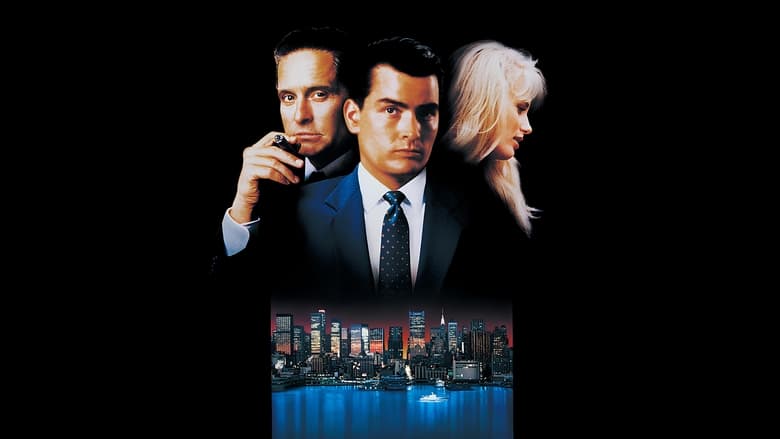
3. Margin Call (2011)
Margin Call offers a tense and claustrophobic glimpse into the early hours of the 2008 financial crisis from inside a large investment bank. The film unfolds almost in real-time, as a junior analyst discovers a fatal flaw in the firm's assets, setting off a chain of panicked decisions that reverberate through the entire company. With an ensemble cast including Kevin Spacey, Jeremy Irons, and Zachary Quinto, Margin Call excels at building suspense and exploring the ethical dilemmas faced by those who knew the system was on the brink of collapse. The dialogue is sharp and realistic, avoiding overly technical jargon while still conveying the gravity of the situation. This film is a chilling reminder of how easily the financial system can be brought to its knees. Interesting fact: The director, J.C. Chandor, was nominated for an Academy Award for Best Original Screenplay for this film.
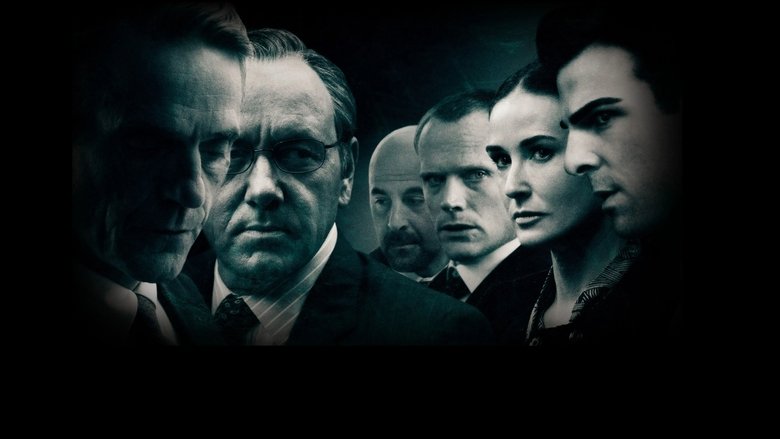
2. The Big Short (2015)
The Big Short is a brilliant and infuriating dramatization of the events leading up to the 2008 financial crisis. Adam McKay masterfully blends humor and outrage, making complex financial instruments understandable to a wider audience while simultaneously highlighting the recklessness and greed that led to the collapse. Christian Bale, Steve Carell, Ryan Gosling, and Brad Pitt lead an all-star cast, each portraying real-life figures who saw the impending disaster and tried to profit from it while warning the world. The film's use of celebrity cameos to explain complicated concepts is both entertaining and effective. The Big Short doesn't just tell the story of the crisis; it makes you feel the frustration and anger of those who knew what was coming but were powerless to stop it. Fun Fact: The movie is based on the non-fiction book of the same name by Michael Lewis, who also wrote Moneyball and The Blind Side.

1. The Wolf of Wall Street (2013)
Martin Scorsese's The Wolf of Wall Street is a dizzying, darkly comedic, and utterly outrageous portrayal of Jordan Belfort's rise and fall in the world of high finance. Leonardo DiCaprio delivers a career-defining performance as Belfort, capturing his charisma, ambition, and complete lack of moral compass. The film pulls no punches in depicting the excesses of Wall Street in the 90s, showcasing lavish parties, rampant drug use, and questionable business practices. Jonah Hill and Margot Robbie provide stellar support, adding depth and humor to the already chaotic narrative. While some criticize its glorification of greed, The Wolf of Wall Street serves as a cautionary tale about the seductive power of wealth and the consequences of unchecked ambition. Did you know? DiCaprio actually ad-libbed the iconic chest-thumping chant, inspired by a motivational exercise he witnessed.
